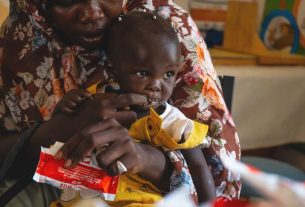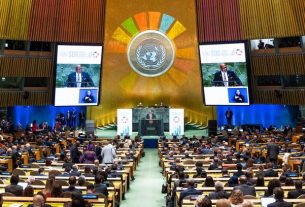Background
Safeguarding means avoiding harm to people or the environment. Since early 2018, the FCDO has had a focus on safeguarding against Sexual Exploitation and Abuse and Sexual Harassment (SEAH) in the international aid sector.
Our goal is to ensure all those involved in work that we support take all reasonable steps to:
- prevent harm, particularly SEAH, from occurring
- listen to those who are at risk and affected
- respond sensitively but robustly when harm or allegations of harm occur
- learn from every case
The FCDO’s work on SEAH looks at both the FCDO and the partners we fund with Official Development Assistance (ODA) and other funding to deliver development, humanitarian and peace-related programmes around the world, often with vulnerable people.
This page provides an overview of the FCDO’s work and points to guidance for those working in the aid sector on how to safeguard their people and programmes.
Common definitions for the individual elements of SEAH can be found in the June 2024 Common Approach to Protection from SEAH (CAPSEAH):
- sexual exploitation: any actual or attempted abuse of a position of vulnerability, differential power or trust for sexual purposes, including, but not limited to, profiting monetarily, socially or politically from the sexual exploitation of another
- sexual abuse: the actual or threatened physical intrusion of a sexual nature, whether by force or under unequal or coercive conditions. This includes sexual assault, rape, molestation, and other forms of non-consensual sexual activity
- sexual harassment: a range of unacceptable and unwelcome behaviours and practices of a sexual nature that may include, but are not limited to, sexual suggestions or demands, requests for ‘sexual favours’, sexual, verbal or physical conduct, or gestures that are or might reasonably be perceived as offensive or humiliating. This includes jokes, comments or messages of a sexual nature; suggestive looks, staring or leering; display of or circulation of pornographic material. It is sometimes used to describe behaviour in a work environment but can also occur in communities and public spaces
- CAPSEAH also explains what types of activities are considered SEAH, including all sexual activity with persons under the age of 18.
FCDO safeguarding standards
The FCDO expects all partners we work with to take all reasonable steps to safeguard the people they come into contact with (including staff and the communities in which programmes are delivered) from SEAH. The FCDO holds itself to at least the same high standards we expect of our partners.
Along with other OECD Development Assistance Committee (DAC) donors, we align with key international principles and minimum standards on tackling SEAH, including:
CAPSEAH is built on and fully aligned with these principles and standards.
For partners working under an FCDO accountable grant or memorandum of understanding (MoU), these standards are reflected in our Safeguarding against SEAH Due Diligence guidance. All FCDO partners delivering a programme via an accountable grant or MoU will have their capability on safeguarding against SEAH examined as part of the overall FCDO Due Diligence process. In early 2025 the FCDO introduced a simplified application process in some circumstances.
For partners under Official Development Assistance (ODA) contracts, the standards are reflected in our Supply Partner Code of Conduct and terms and conditions (PDF, 350 KB). The Code ensures that suppliers and their delivery chain partners have robust procedures in place to prevent, report and respond to safeguarding issues.
How to report a safeguarding concern to the FCDO
If you are in immediate danger, call the police or your relevant security team if it’s safe to do so.
You should report any concerns about sexual exploitation and abuse and sexual harassment (SEAH) relating to FCDO staff or programmes to the FCDO’s Safeguarding Investigations Team:
If you are unsure whether to report a concern, contact us for advice.
You can report concerns anonymously and the FCDO will treat them in confidence. We will consider whether we should refer your concern to the National Crime Agency (NCA), Charity Commission, police or other relevant authority.
The FCDO expects its programme partners to have mechanisms in place to prevent SEAH, to facilitate reporting and also to respond sensitively but robustly when cases are reported.
The FCDO’s commitments and work on safeguarding
The FCDO is holding itself to at least the same high standards we expect of our partners on safeguarding against SEAH.
2024 Common Approach to Protection from SEAH (CAPSEAH)
CAPSEAH is a short guide launched in June 2024 to help all people and organisations working in humanitarian, development and peace (HDP) settings take action to tackle SEAH.
CAPSEAH provides:
CAPSEAH is voluntary and non-binding, but governments and organisations are encouraged to signal their support and commitment to tackling SEAH by endorsing using the form on the website. Countries and organisations do not have to publicly endorse CAPSEAH to use it. A full list of endorsers is available online. It includes the UK.
2020 UK SEAH Safeguarding Strategy
In September 2020 the FCDO launched a UK Strategy on safeguarding against sexual exploitation and abuse and sexual harassment in the aid sector that applies to all UK Official Development Assistance (ODA) spend. This strategy explains what UK government departments that engage in ODA will do to improve safeguarding standards internally, in partner organisations, and across the whole international aid sector. All UK government ODA spending departments signed up to the strategy.
2019 DAC Recommendation on Ending Sexual Exploitation, Abuse and Harassment in Development Co-operation and Humanitarian Assistance
In July 2019, The Development Assistance Committee (DAC) Recommendation on Ending Sexual Exploitation, Abuse and Harassment in Development Co-operation and Humanitarian Assistance was adopted. It provides a coherent framework for aid agencies and their implementing partners to prevent sexual exploitation and abuse and sexual harassment (SEAH) and respond better if it does occur. A 5-year progress report was published in 2024.
Donor commitments from the 2018 Safeguarding Summit
Twenty-two donors, including all UK government departments who spend Official Development Assistance, signed up to commitments at the 18 October 2018 Safeguarding Summit. Donors agreed to report back on progress.
Cross-sector progress reports
The FCDO has also worked with the other 8 key groups who made commitments at the 18 October 2018 Safeguarding Summit donors. This includes the UN, international financial institutions (IFIs), UK non-governmental organisations (NGOs), UK private sector, UK research funders, British International Investment (BII) and Gavi and the Global Fund, and the Red Cross/Red Crescent movement who made related commitments in 2019 – to work on sector change.
The FCDO continues to chair the Safeguarding Cross Sector Steering Group (CSSG). The CSSG produced annual reports against the 2018 Summit commitments for 5 years and from 2025 onwards plans to issue a light-touch report of its activities:
FCDO progress reports
The FCDO has published reports with further detail on the action that has been taken within the department to take forward the commitments made at the 2018 Safeguarding Summit and from 2024 onwards against the framework of CAPSEAH:
FCDO reports to Parliament annually, including on safeguarding. You can read the annual reports:
Third party scrutiny of FCDO’s work on tackling SEAH
The UK Parliament’s International Development Committee (IDC) published a report following their 2018 inquiry into SEA in the aid sector and a subsequent follow-up report in Oct 2019. A third IDC inquiry into ‘SEA in the aid sector – next steps’ concluded in January 2021 and the UK government’s response was published by the IDC in April 2021. The Independent Commission for Aid Impact (ICAI) conducted a review in 2021 to 2022.



